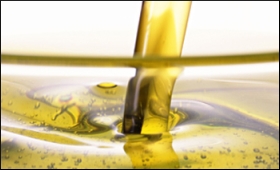|
|
|

|
Budget 2020 expectations of Indian mustard oil industry
|
|

|
|
| Top Stories |
 |
|
|
|
Vivek Puri | 14 Jan, 2020
India has emerged as the largest importer of edible oil in the world.
The country imported millions of tonnes of edible oil last year from
October 2018 to November 2019, which is a record in itself. The nation's
dependence on imported oil is expected to reach alarming levels up to
60-65 per cent.
India continues to remain an oil deficit country
and imports millions of tonnes of edible oil each year to meet the
demand-supply gap, making it the world's largest importer of edible
oils.
Without a dedicated focus on and support for
India's own domestic oilseed production, it would be challenging to
become self-reliant in the edible oil sector. There is an urgent need to
have a vision and a plan for this industry. We need to learn from the
oilseed producing countries and adopt their best practices, which in
turn would enable us to work towards doubling farm incomes by 2022.
Mustard
is one of the most important winter oilseed crops of country. The area
under cultivation witnesses some fluctuations year-on-year and has been
reported to have declined marginally by one per cent as compared to last
year, although the yield has been reported to have increased marginally
year-on-year. However, it is still lagging far, far behind the
international standards.
During the eighties, the
Oilseeds Technology Mission was launched to raise the productivity of
oilseed crops, with a view to reducing the import bill, which was nearly
50 per cent of our domestic requirement at that time, and in a span of
10 years after its launch, India became almost self-sufficient in edible
oils, in 1993-94, with only three per cent imports, 97 per cent of
edible oils were produced within the country. However, over the years,
the Oilseeds Technology Mission could not keep up with the times.
The
government of India should formulate a favourable policy for the
indigenous edible oils sector which benefits farmers, consumers and
manufacturers equally. The objective underlying the creation of the
commodity exchanges in India was to benefit farmers.
Unfortunately,
since the majority of farmers do not transact through commodity
exchanges, which was its prime objective, it has gone into the hands of
speculators, which has artificially impacted the physical market. Hence,
we require a regulator like SEBI, which can keep a watch on such
malpractices.
For some time now, Puri Oil Mills Limited
has been recommending the establishment of a Mustard Oil Development
Board by the government. Largely, such a board can be modelled along the
lines of the American Soybean Association or Spain's International
Olive Council that protects and promote the interests of olive and olive
oil producers, or the Malaysian Palm Oil Board, established by the
Malaysian government with the aim of promoting palm oil all over the
world.
The proposed Mustard Oil Development Board can
play a pivotal role through research and development by developing value
added products like the soya industry has done by developing soya
protein, soya milk and soya nuggets, among others. Similarly, it can
ensure an integrated approach to the development of the mustard industry
by enhancing value addition across mustard-based products.
To
conclude, Mustard Oil is an integral part of Indian agriculture,
cuisine and culture. Such is the sanctity of Indian mustard oil that
even our ancient treatises, find a mention of mustard's virtues as a
valuable food crop and for its medicinal properties. The medical and
scientific fraternity has been rediscovering the significant health
benefits offered by mustard oil.
A series of studies have shown
that it is the best edible oil for heart health in India, given the
dietary habits, lifestyles and culinary practices prevalent across the
country. Therefore, mustard seed and Indian mustard oil does not just
have economic relevance but is also an integral part of India's rich
culinary heritage.
The Indian mustard oil industry hopes Finance
Minister Nirmala Sitharaman will take note of this in the Union Budget
for 2020-21.
(Vivek Puri is Managing Director of Puri Oil Mills Limited, Promoter of P Mark mustard Oil since 1933)
|
|
|
| |
|
|
|
|
|
|
|
|
|
|
|
|
|
|
| |
| Customs Exchange Rates |
| Currency |
Import |
Export |
US Dollar
|
84.35
|
82.60 |
UK Pound
|
106.35
|
102.90 |
Euro
|
92.50
|
89.35 |
| Japanese
Yen |
55.05 |
53.40 |
| As on 12 Oct, 2024 |
|
|
| Daily Poll |
 |
 |
| Do you think Indian businesses will be negatively affected by Trump's America First Policy? |
|
|
|
|
|
| Commented Stories |
 |
|
|
|
|
|
| |
|